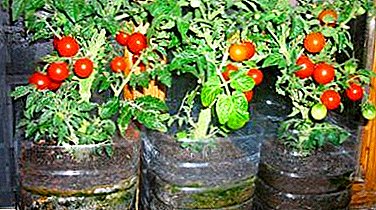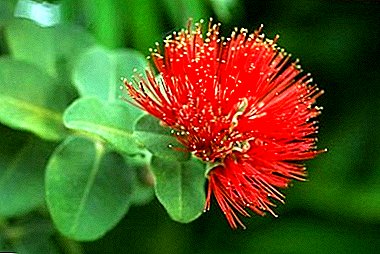
Being in their natural habitat, guinea pigs consume a huge amount of plant food. That is why the animal contained in the home, should be provided with all necessary nutrients.
The choice of diet should be approached with the utmost responsibility, since not all green food is equally useful. Some types of plants can cause irreparable harm to the life of your pet. Can I feed the rodent with sorrel, as well as the nuances of the ration of guinea pigs?
Can this grass be eaten by rodents?
But to the collection of the usual kind of sorrel should be approached responsibly. You can not feed the rodents than horrible. For such weed, like sorrel, this also applies. It must be environmentally friendly. That is why some collection recommendations should be played up.
 Do not pick grass near industrial plants., on pastures and near the slopes, as well as in places where ticks invade, as they can stick to the pet's skin and cause dangerous diseases.
Do not pick grass near industrial plants., on pastures and near the slopes, as well as in places where ticks invade, as they can stick to the pet's skin and cause dangerous diseases.
A plant grown in an environmentally friendly environment, no need to wash. Washed green food can cause bloating and diarrhea.
Any heat treatment of sorrel deprives of its useful properties., so that such a meal will already be just useless.
Distinguish the "horse sorrel" from the usual is not difficult. The leaves of the usual form of this plant are light green in color and are small in size, approximately the size of a human palm. And the leaves of "horse sorrel" with red veins and have a dark green color, in addition, they are 3-4 times more.
What are the beneficial properties of the plant?
Sorrel contains proteins, fiber, carbohydrates, thiamine, ascorbic, folic and sorrel acids, as well as a large amount of vitamin B.
This plant has a mass of beneficial macro- and microelements, among which are potassium, calcium, magnesium, phosphorus, iron, zinc, etc.
In small quantities, it favorably affects the general condition of the animal, tones, and also helps to improve digestion.
How to give a product to a pet?
As a rule, guinea pigs do not have a diet as such, they eat almost always. Such continuous food intake provides better processing.
Despite the whole range of nutrients, giving sorrel to guinea pigs is recommended no more than 2-3 times a week and only in small portions, as the use of this herb in large quantities can harm the health of the animal.
 If the animal eats sorrel for a long time, the acid contained in the plant can provoke kidney stones and a violation of mineral metabolism in the body. In the summer, sorrel is better to replace the dandelion, which also has a lot of useful properties. It will have a beneficial effect on the digestive system and improve the appetite of the rodent. In winter, fresh sorrel can be replaced by dry. But here the main thing to know when to stop.
If the animal eats sorrel for a long time, the acid contained in the plant can provoke kidney stones and a violation of mineral metabolism in the body. In the summer, sorrel is better to replace the dandelion, which also has a lot of useful properties. It will have a beneficial effect on the digestive system and improve the appetite of the rodent. In winter, fresh sorrel can be replaced by dry. But here the main thing to know when to stop.
Also after wintering, green grass should be introduced into the diet of the animal in stages, in order not to harm the body and not to provoke an upset gastrointestinal tract. Veterinarians recommend giving any kind of fresh grass, including sorrel, in the form of "salad", i.e. with vegetables (for example, carrots and cucumbers) and other types of herbs. Thus, nutrients are better absorbed by the animal.
Sorrel is a plant that can benefit the rodent only if it is used in small quantities and without fanaticism. Otherwise, the animal may suffer or die. Is it worth it to include sorrel in the diet of a guinea pig or not - this is the work of every owner. The most important thing to remember is that everything needs measure.












